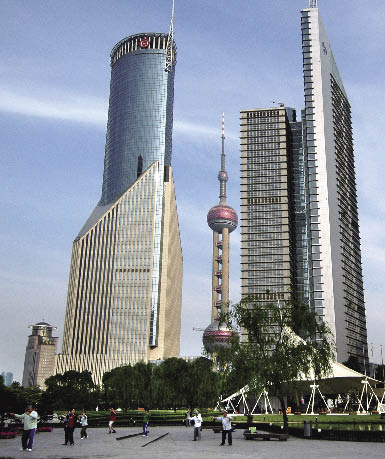|
Pros and Cons
"This measure will certainly promote the RMB's position in Asian monetary and financial cooperation," says Ding Zhijie, assistant dean of the School of Banking and Finance at the University of International Business and Economics. In terms of regional monetary cooperation, there is a fight for dominance between the yen and the RMB. Although China's currency is presently no match for Japan's, through smart handling an effective balance can be found.
According to a strategy analyst from Standard Chartered Bank, the RMB settlement pilot project will stimulate investor anticipation about RMB appreciation in the short and medium term. You Shenghua, director of the Information Department, Guangdong Council for the Promotion of International Trade, also noted that the present predicament of many enterprises has partly been caused by the RMB's appreciation. Using the RMB as a settlement currency in the future will be more conducive to maintaining export stability.
Assistant dean Ding Zhijie points out, however, that regionalization of the RMB will also involve some costs and negative effects. The costs are mainly reflected in the restrictions it will place on domestic monetary policy, as well as added policy responsibilities for the Chinese government. When constituting monetary policy, China's authorities will need to consider potential impacts on all economies in the region, not just their own. The negative effect of RMB regionalization is that domestic and foreign markets will get into tighter alignment, meaning the impact of external economic shifts will be felt much more quickly in China.
According to Cheng Siwei, former vice chairman of the Standing Committee of the National People's Congress, the realization of free trade between China and ASEAN, and the use of the RMB in settlements by some other countries, means trust in the RMB is rising.
"The regionalization of the RMB is not merely to create seigniorage, but to maintain stable development of China's economy and trade, and also gain control over the pricing of international bulk commodities," says Xia Bin. "To enjoy the benefits of globalization while evading its risks, China has to open the RMB market gradually and in an orderly way, starting with regionalization."
 |
|
Trans-border settlements in RMB will enhance Shanghai’s status as an international financial center. |
|
